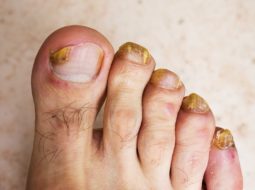Tinnitus And Dizziness | Menieres-Disease
Tinnitus and dizziness are two common symptoms associated with Meniere's disease. Meniere's disease is a disorder affecting the inner ear, characterized by severe dizziness, ringing in the ears, hearing loss, and ear congestion. The exact cause of this condition remains unknown; however, theories range from fluid buildup in the inner ear to genetic variations. Diagnosis is typically based on medical history and the presence of specific symptoms. Various treatment options are available to alleviate these symptoms, including medications, dietary changes, therapy, and surgical interventions when necessary. Ongoing research aims to enhance our understanding of this condition and develop more effective prevention and treatment strategies.
Key Takeaways
- Tinnitus and dizziness are common symptoms of Meniere's disease.
- The causes of Meniere's disease include the buildup of fluid in the inner ear and abnormal balance and hearing signals.
- Treatment options for Meniere's disease include medications, dietary and behavioral changes, cognitive therapy, and surgical procedures.
- It is important to seek medical evaluation and treatment for vertigo and tinnitus, as the underlying conditions may require specific interventions.
What is Ménière's disease
Ménière's disease is a disorder of the inner ear that causes severe dizziness, ringing in the ears, hearing loss, and ear congestion. It typically affects only one ear and is often preceded by symptoms such as tinnitus or muffled hearing. The exact cause of Ménière's disease is unknown, but several theories suggest that it may be related to abnormalities in blood vessels, viral infections, allergies, autoimmune reactions, or genetic variations. Risk factors for developing Ménière's disease include a family history of the condition and certain environmental factors.
The impact of Ménière's disease on daily life can be significant, as individuals may experience frequent episodes of debilitating vertigo that can interfere with their ability to work or engage in everyday activities. Coping strategies and support are important for managing the physical and emotional challenges associated with this condition. This may include making dietary and behavioral changes to reduce triggers, participating in cognitive therapy to address anxiety related to attacks, and seeking support from healthcare professionals or support groups who specialize in Ménière's disease management.
Causes and Diagnosis of Meniere's Disease
The causes and diagnosis of this inner ear disorder involve the buildup of fluid in the labyrinth, which houses balance and hearing organs, resulting in abnormal signals related to balance and hearing. Inner ear damage or vestibular nerve damage can cause both vertigo and tinnitus. Conditions like Meniere's disease, labyrinthitis, acoustic neuroma, cholesteatoma, otosclerosis, and genetic conditions can lead to vertigo and tinnitus. It is important to see a physician for evaluation if experiencing vertigo and tinnitus. A hearing test may be conducted to assess the extent of damage. Treatment options depend on the underlying condition causing vertigo and tinnitus. Medications, physical therapy, or surgery may be recommended. Lifestyle changes such as stress management techniques can also help manage symptoms. Overall, a comprehensive medical evaluation is crucial for accurate diagnosis and appropriate treatment of tinnitus and dizziness associated with Meniere's disease or other related conditions involving inner ear damage or vestibular nerve damage.

Treatment Options
Treatment options for managing symptoms and improving quality of life in individuals with inner ear disorders involve a range of approaches, including medication, therapy, and surgical interventions. Medications such as meclizine, diazepam, glycopyrrolate, and lorazepam can help relieve dizziness associated with inner ear disorders. Salt restriction and diuretics may be recommended to reduce fluid retention and lower inner ear pressure. In addition to medication management, lifestyle changes such as avoiding caffeine, chocolate, and alcohol can also aid in symptom management.
Cognitive therapy may be beneficial for coping with attacks and reducing anxiety. In some cases, injections of gentamicin or corticosteroids may be used to control vertigo symptoms. Surgical options are considered when other treatments fail to provide relief. It is important to note that alternative therapies have not shown proven effectiveness in treating these conditions.
Surgical Options
Surgical interventions are considered as an option for individuals with inner ear disorders when other treatments fail to provide relief or symptom management. In the case of Ménière's disease, surgery may be recommended if medications and lifestyle changes do not effectively control vertigo attacks. The two main surgical options for Ménière's disease include decompression procedures and vestibular nerve sectioning. Decompression procedures involve creating a small opening in the endolymphatic sac to drain excess fluid, while vestibular nerve sectioning involves cutting the balance nerve to reduce vertigo symptoms. However, it is important to note that surgical interventions for Ménière's disease have varying efficacy rates and potential risks and complications. These can include hearing loss, imbalance, facial weakness, and cerebrospinal fluid leakage. Therefore, careful consideration should be given to the potential benefits and risks before opting for surgical treatment.
Outlook and Research
Ongoing research in the field of Ménière's disease aims to gain insights into the biological mechanisms underlying the condition, with a focus on optimizing treatment strategies and developing innovative approaches such as precise drug delivery devices and manipulation of endolymph volume. Research progress in this area holds promise for improving outcomes and enhancing quality of life for individuals affected by Ménière's disease. Clinical trials are being conducted to determine the optimal dosage of gentamicin while minimizing the risk of hearing loss, as well as to explore the efficacy of pressure pulse treatment using a device that delivers air pressure pulses to the middle ear. Additionally, studies are underway to investigate the relationship between endolymph volume and inner ear function, which may lead to new therapeutic interventions. These advancements in research offer future prospects for better management and prevention strategies for Ménière's disease.
Previous Posts






